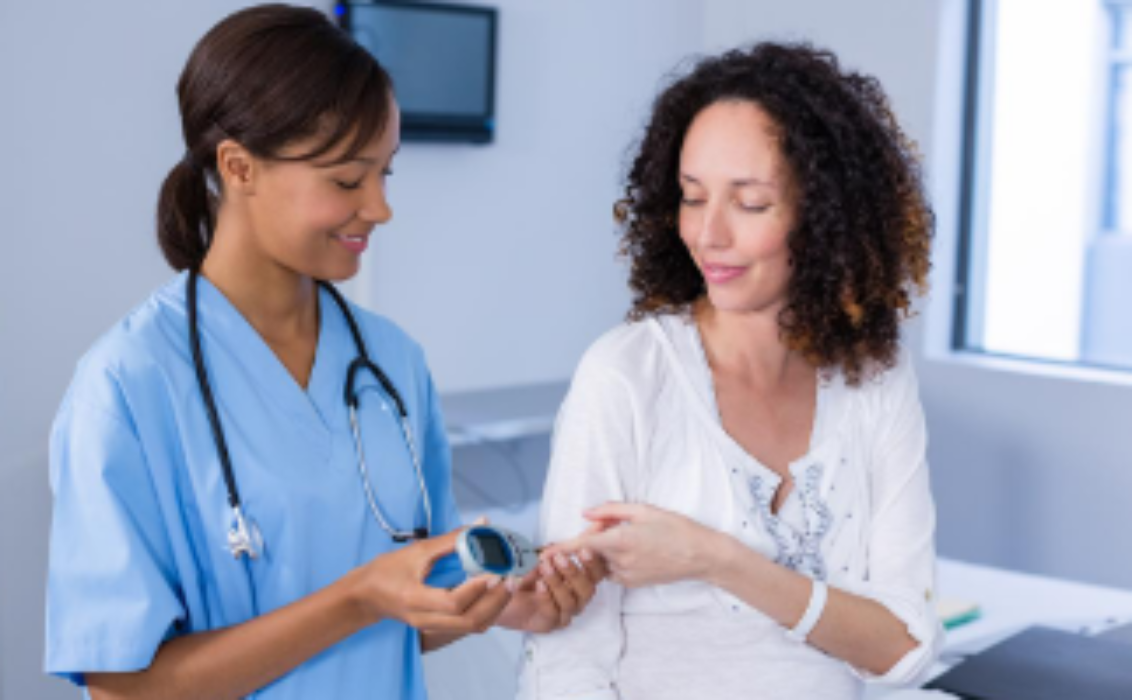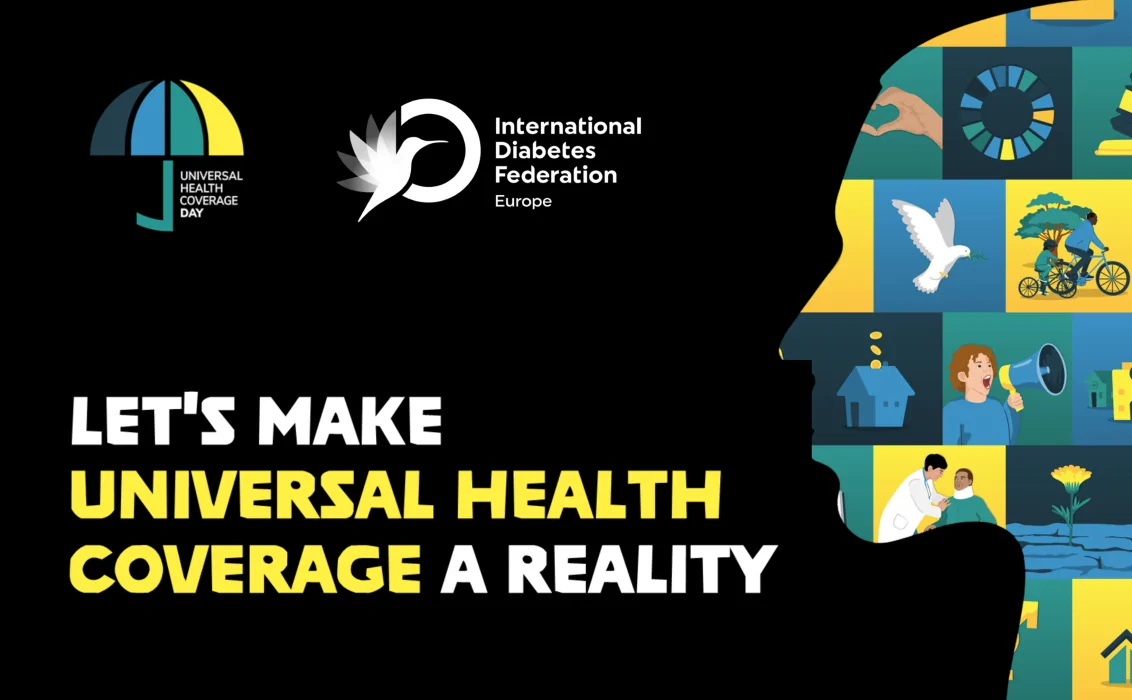Today, Monday 21st September was the first day of EASD 2020. This year the event is being held online in the form of a virtual fair and IDF Europe can be found at booth 10 throughout the event.
IDF Europe’s symposium took place from 14.30-15.30 CET and focused on the evolving role of the diabetes nurse across Europe. Following some opening remarks from IDF Europe President, Dr Niti Pall, Ms Anne Felton, President of FEND kicked off the discussion by focusing on the future of diabetes nursing, highlighting the need for more leadership programmes and enhanced collaboration between IDF Europe and FEND to support nurses and people living with diabetes.
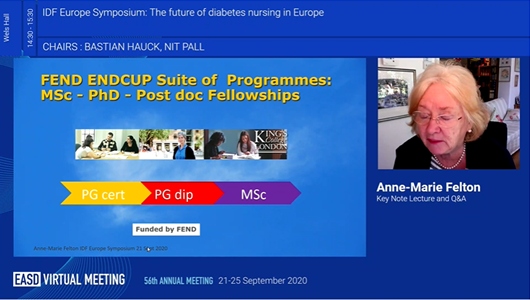 |
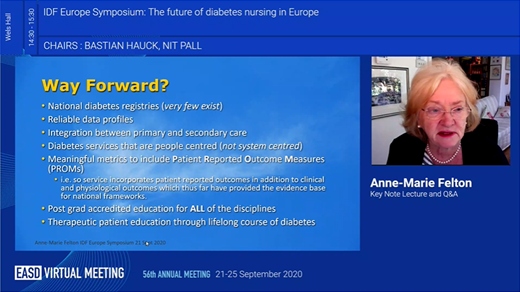 |
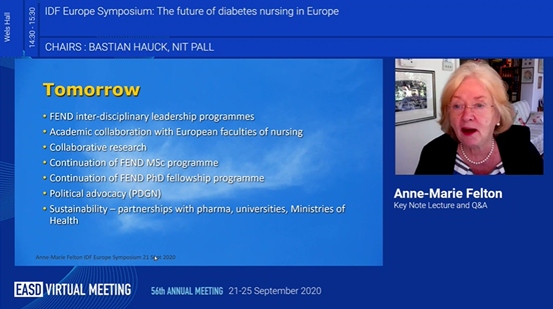 |
During the first panel, titled “Shifting Tasks to Explore New Ways of Providing Diabetes Care – The Place of the Diabetes Nurse”, Miklos Szócska, Director of Institute of Digital Health Services of Semmelweis University and former Minister of State for Health of the Hungarian Government, shared his optimism and concern about the shifting role of diabetes nurses. “Nurses are committed and ready to take up management jobs as well as taking more and more responsibilities, but resources are scarce and who will take over the more traditional work that is still on their shoulders”, said Dr Szócska before addressing the importance of training, recruitment, incentives and technology. Dr. Kirsty Winkley, King’s College London & Florence Nightingale Faculty of Nursing & Midwifery, underlined that the focus of diabetes nurses is to support people living with diabetes in their self-management. As such, diabetes nurses already have their own clinical and research remit but their role could be further expanded. Dr Winkley also emphasized the importance of keeping diabetes nurses active clinically and academically and agreed with the previous speakers on the need for diabetes nurses to become leaders, to influence every level of the political agenda.
The focus of the symposium then shifted to the ‘digital transformation’ and how diabetes nurses can harness it. On this topic, Ms. Aldona Danylienne pointed out that diabetes nurses must be trained to analyse and interpret the data collected by new technologies to offer better support to people living with diabetes. Prof. Dr. Tatjana Milenkovićz, while praising the digital transformation for the many benefits it brings to healthcare, also cautioned the audience about insufficient data surrounding the clinical validity of some apps and websites used by patients and the negative impact of lack of personal contact between the diabetes nurse and their patients. To this point, Ms. Maartje Roskams added that ‘nothing can replace a special bond between a patient and a diabetes nurse, but digitalization can be an added value’.
In his closing remarks, Prof. Nebosa Lalic touched upon the importance of training the diabetes nurse to individualise treatment according to the needs of the person living with diabetes. Digital tools have a critical role to play in this but their implementation must be supported by adequate training of nurses and other healthcare professionals, and we must ensure that people remain at the centre of care.
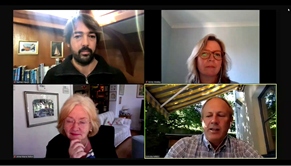 |
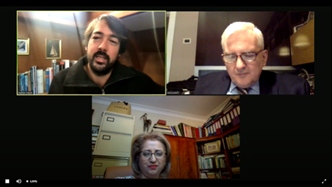 |
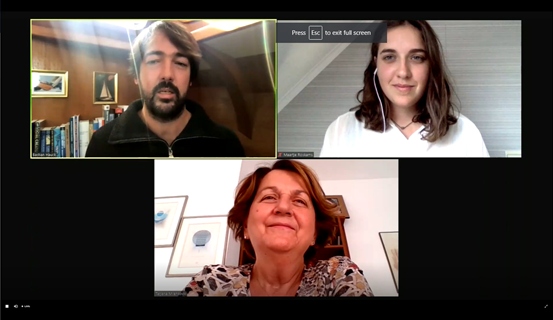 |
A big thank you to our external speakers on the day Ms. Anne Felton from FEND, Mr. Miklos Szócska, Director of Institute of Digital Health Services of Semmelweis University, and Dr. Kirsty Winkley, King’s College London & Florence Nightingale Faculty of Nursing & Midwifery.
Watch the symposium here:
